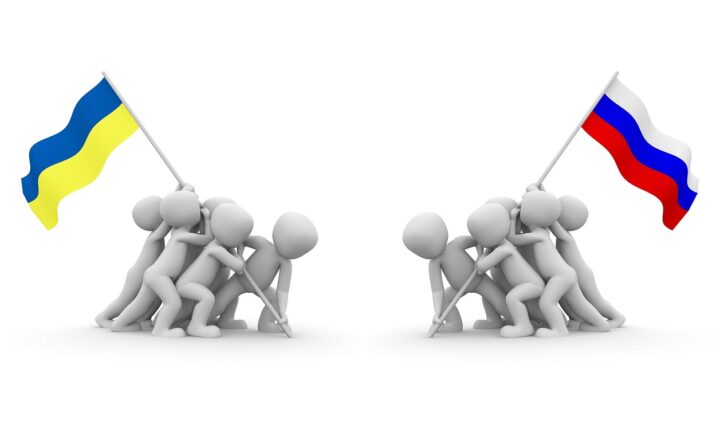
History is woven with tales of conflict, struggle, and resolution. These events, whether grand or intimate, resonate through time, providing insights and lessons for future generations. By analyzing these historical conflicts, we unveil patterns of human behavior, decision-making, and ultimately, the consequences of choices made. In this article, we’ll explore significant historical conflicts, examining how the lessons learned can still apply to our modern lives.
1. The Importance of Understanding History
History isn’t merely a timeline of events; it’s a narrative shaped by the collective experiences of humanity. Understanding the lessons from past conflicts helps us acquire valuable perspectives that can inform our decisions and prevent the repetition of errors. Each conflict reveals the human condition and provides an opportunity for molding wiser generations.
Moreover, history fosters empathy and understanding as we learn about varied cultures and perspectives. As we delve into the discussions surrounding historical conflicts, we find ourselves engaging with complex issues that require careful consideration. By dissecting these moments, we can decode the frameworks of diplomacy, communication, and negotiation that are applicable today.
2. The Peloponnesian War: Power Struggles and Alliances
One of the most consequential conflicts in ancient history, the Peloponnesian War (431–404 BC) between Athens and Sparta, serves as a case study on the dynamics of power and alliances. The warfare, marked by shifting allegiances, political propaganda, and regional dominance, illustrated the delicate balance between cooperation and rivalry.
During this period, Athens’ aggressive expansionism incited fear in Sparta and its allies, leading to responses based on power preservation rather than mutual cooperation. The eventual outcome—Sparta’s victory and Athens’ loss—highlights the dangers of overreach and the necessity for strategic partnerships rather than competing for dominance.
**Key Lesson**: The pursuit of power often leads to self-destructive outcomes. Establishing cooperative alliances grounded in mutual respect and understanding can build lasting peace more effectively than domination.
3. The American Civil War: The Cost of Division
The American Civil War (1861–1865) serves as a poignant example of how deep-seated divisions based on social, economic, and political issues can ignite deadly conflict. The central disputes surrounding slavery, states’ rights, and economic disparity escalated into a war, resulting in the loss of approximately 620,000 lives, a staggering toll that echoes through American history.
The aftermath of the Civil War necessitated a lengthy period of reconciliation. The Reconstruction era aimed to rebuild and redefine the relationships between states and their citizens, ultimately striving to heal a fractured nation. Today, this conflict still informs discussions around racial equality, governance, and civil rights.
**Key Lesson**: Societal division based on inequities yields destructive consequences. Promoting unity through understanding and dialogue is essential to cultivating harmony in diverse societies.
4. World Wars: Global Interconnectedness and Diplomacy
The two World Wars of the 20th century reshaped international relations and brought forth dramatic changes in the political landscape. World War I (1914–1918) established the foundations for World War II (1939–1945), with unresolved tensions and punitive treaties creating fertile ground for future conflicts.
These wars highlighted the critical importance of diplomacy. The establishment of organizations like the United Nations aimed to foster international collaboration and prevent future conflicts. The League of Nations, although ultimately ineffective, was an early attempt at diplomatic intervention inspired by the need for collective security.
**Key Lesson**: The interdependence of nations necessitates effective dialogue and cooperation. Building robust diplomatic frameworks can reduce the likelihood of widespread conflict and promote mutual understanding and respect.
5. The Cold War: The Perils of Ideological Extremes
The Cold War (1947–1991) represents a significant ideological conflict between capitalism and communism. This protracted period of tension saw both the United States and the Soviet Union engaging in proxy wars, arms races, and a battle for global influence without engaging in direct military conflict.
The Cold War exemplifies how extreme ideologies can lead to paranoia and conflict, culminating in the threat of nuclear disaster. The eventual easing of tensions through diplomacy and mutual cultural exchanges emphasizes the significance of compromise and understanding.
**Key Lesson**: Extremism can lead to pervasive fear and conflict. Embracing moderate perspectives and understanding differing viewpoints fosters unity and reduces hostilities.
6. Modern Conflicts: Lessons for Today
In contemporary times, conflicts around the world, from civil wars to international disputes, reflect the enduring relevance of historical lessons. Issues like territorial disputes, ideological extremes, and ethnic tensions continue to challenge global stability.
Understanding the historical context behind modern conflicts can help policymakers make informed decisions. By utilizing lessons from the past, strategies such as prevention through dialogue, fostering mutual respect, and promoting humanitarian efforts can pave the way for peaceful resolutions.
**Key Lesson**: Learning from history enables us to cultivate more effective conflict resolution methods. It encourages proactive rather than reactive responses to emerging tensions.
Conclusion
As we unravel the threads of historical conflicts, we realize that the challenges societies face today often echo those of the past. By learning from these lessons, we gain insight into our behaviors and choices, enabling us to build a future characterized by understanding, cooperation, and peace. History has a way of repeating itself, but it also offers invaluable wisdom if we choose to learn from it. By actively engaging with our historical narratives, we foster a culture of learning that enriches our society and helps us avoid repeating the missteps of our ancestors.
The stories of conflict serve not only as reminders of our shortcomings but as beacons guiding us toward a more informed and compassionate world.







